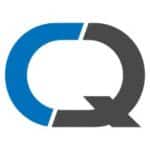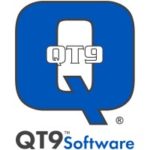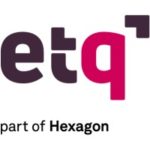Quality Management System Software
A quality management system (QMS) gives businesses tools to maintain thorough enterprise documentation and manage regulatory compliance efficiently. By using software to record company quality management goals and track employee progress on tasks, organizations can eliminate paper trails and store all quality data in one digital repository. The best QMS solutions provide resources for teams to manage changes to produced goods, consistently document processes, and automate their quality management operations. This guide highlights key features of these quality management systems, provides key considerations for buyers, and helps businesses narrow their search.
In this definition...
Best Quality Management System Software
Qualio
 Qualio is a QMS solution designed for life science organizations, such as pharmaceutical and biotechnology companies. Qualio offers supplier management for businesses to manage documentation requirements and audit timelines for their third-party vendors. Suppliers are a major source of risk, especially in medical industries where timely receipt of industry-compliant goods is critical. With Qualio, teams can categorize suppliers based on risk level and develop a system for accepting and rejecting them.
Qualio is a QMS solution designed for life science organizations, such as pharmaceutical and biotechnology companies. Qualio offers supplier management for businesses to manage documentation requirements and audit timelines for their third-party vendors. Suppliers are a major source of risk, especially in medical industries where timely receipt of industry-compliant goods is critical. With Qualio, teams can categorize suppliers based on risk level and develop a system for accepting and rejecting them.
Training management is a useful tool for managing employee progress on company priorities like compliance awareness or onboarding progress. To track employee training processes and schedules, Qualio offers administrators an overview of all employees, their outstanding training, the percentage of training completed, and the entire company’s completion status. Multiple customer reviews highlighted the helpfulness of these training features.
Qualio is a good solution for newer or inexperienced teams; user reviews noted it was particularly user-friendly, and the support team receives high praise as well. If your business needs extra assistance while learning to use Qualio, the customer team can provide additional technical support. Businesses looking for an advanced documentation solution may want to look at alternative solutions, though; some users found the text editing and formatting features limited or insufficient.
ComplianceQuest
 ComplianceQuest is a compliance and eQMS system for businesses that either want to scale their quality management operations or start with a range of modules. Aside from standard QMS features, it offers market surveillance, risk management, and environment and sustainability solutions.
ComplianceQuest is a compliance and eQMS system for businesses that either want to scale their quality management operations or start with a range of modules. Aside from standard QMS features, it offers market surveillance, risk management, and environment and sustainability solutions.
ComplianceQuest’s environmental safety solution allows sustainability-focused organizations to set and track objectives related to environmental care. Businesses are able to track and report emissions to regulatory bodies. They can report environmental spills and record data about the incident to determine how to better handle similar situations in the future. Businesses focused on environmental safety and their environmental/carbon footprint should consider ComplianceQuest.
Since ComplianceQuest is built on the Salesforce platform, it’s a good choice for businesses that already use Salesforce as their CRM. Salesforce users have a deployment and implementation advantage because they already know how to use Salesforce’s extensive cloud platform. Salesforce supports 21 CFR Part 11 requirements like audit trails, too, so ComplianceQuest users can remain compliant with industry standards while using the platform.
Learn more about sustainability from TechRepublic: To achieve corporate sustainability, organizations must understand how digital practices are contributing to their carbon footprint
QT9
 QT9 is a quality management system solution with a range of modules, including document control, corrective actions (CAPA), and engineering change orders. QT9 offers internal collaboration tools for tasks like sharing documents and attaching files to teammate tasks. It also has portals for communicating with third-party suppliers and customers. Teams that want collaboration tools built into their QMS will benefit from QT9’s tasks, assignment, and sharing features.
QT9 is a quality management system solution with a range of modules, including document control, corrective actions (CAPA), and engineering change orders. QT9 offers internal collaboration tools for tasks like sharing documents and attaching files to teammate tasks. It also has portals for communicating with third-party suppliers and customers. Teams that want collaboration tools built into their QMS will benefit from QT9’s tasks, assignment, and sharing features.
The calibration management module allows teams to quickly locate calibration history for required audits. They can create schedules for calibrating all gages, or measurable devices, within the organization. The calibration module shows each gage’s calibration history if a worker needs to check the timeline or safety of a specific gage. Users are also able to schedule gage calibration based on type or location.
QT9 has both QMS and enterprise resource planning (ERP) modules. The ERP solution has a 30-day free trial, giving businesses a month to decide whether it’s a suitable fit. It’s available both in the cloud and for on-premises computers and servers. Businesses that want to purchase both ERP and QMS software should consider QT9.
QT9 receives high customer reviews for its technical support and team. It’s a good choice for businesses in the manufacturing and supply chain industries, especially since it offers ERP software too.
Qualtrax
 Qualtrax is a quality management solution that is particularly useful for smaller organizations in testing and laboratory fields, such as forensics, clinical, or environmental labs. The solution is cloud-based and offers a free trial to prospective buyers. One highlight of Qualtrax’s product is customizable workflows—almost any quality management process, like accident reports or corrective actions, can be designed to move automatically through the organization until it’s finished.
Qualtrax is a quality management solution that is particularly useful for smaller organizations in testing and laboratory fields, such as forensics, clinical, or environmental labs. The solution is cloud-based and offers a free trial to prospective buyers. One highlight of Qualtrax’s product is customizable workflows—almost any quality management process, like accident reports or corrective actions, can be designed to move automatically through the organization until it’s finished.
Qualtrax offers accreditation management for enterprises that want to track their progress on laboratory accreditations. It also provides process management features like equipment calibration and customer complaint management.
Customers had high praise for the Qualtrax support team in their reviews. For smaller businesses or teams that need consistent technical assistance or want to work with a highly personal vendor, Qualtrax is a good choice.
Intellect
 Quality management provider Intellect offers no-code solutions for modifying or creating new applications within the quality management suite. Existing applications include audit management, CAPA, employee training, and inspection management. Consider Intellect for teams that want more control over their quality management applications or would like to customize them for specific company needs and use cases.
Quality management provider Intellect offers no-code solutions for modifying or creating new applications within the quality management suite. Existing applications include audit management, CAPA, employee training, and inspection management. Consider Intellect for teams that want more control over their quality management applications or would like to customize them for specific company needs and use cases.
Intellect users can create custom dashboards to quickly view progress metrics and keep their team appraised of quality-related activities like training and document deadlines. Teams may need to dedicate significant time to implementing and learning the software because it has so many applications. But the benefit of applying that time and effort is an interconnected suite of quality and safety solutions suitable for enterprise needs.
Intellect is a full-featured solution for businesses in many industries, particularly companies that need a wide range of safety tools. Solutions include job hazard analysis and calibration. It covers multiple ISO and FDA standards, as well as a couple of OSHA and EPA regulations.
MasterControl
 MasterControl offers robust analytics in its QMS platform; its Insights solution has interactive dashboards and reporting features for data teams and executives alike. Users can filter and link dashboards and export data in formats like PDF and CSV. Insights is connected to a data lake architecture, which stores large volumes of data from business applications that QMS systems need to track. Businesses that want an analytics solution and reporting capabilities for their QMS solution should consider MasterControl.
MasterControl offers robust analytics in its QMS platform; its Insights solution has interactive dashboards and reporting features for data teams and executives alike. Users can filter and link dashboards and export data in formats like PDF and CSV. Insights is connected to a data lake architecture, which stores large volumes of data from business applications that QMS systems need to track. Businesses that want an analytics solution and reporting capabilities for their QMS solution should consider MasterControl.
MasterControl includes a comprehensive supplier management suite, which includes bill of materials features like BOM documentation and the ability to view changes. Users can run supplier corrective action request processes, so they also have CAPA procedures for their third-party partnerships.
Although MasterControl supports the Google Chrome browser, its online documentation says that not all features are supported on Chrome. Organizations that use Chrome as their main browser should consider this limitation before purchasing. Also note that some user reviews mention that MasterControl has a learning curve, and others found platform navigation challenging. Teams will likely need to dedicate plenty of time to implementation before completely launching MasterControl.
ETQ Reliance
 ETQ Reliance is a cloud-native solution with 40 applications available on its platform. Aside from its core applications, like document control and training management, ETQ provides industry-specific and operation-specific applications. These include lab investigation, environmental management, and life sciences compliance. ETQ also has delegation and escalation tools so team leaders can funnel work to the appropriate person or prioritize specific issues.
ETQ Reliance is a cloud-native solution with 40 applications available on its platform. Aside from its core applications, like document control and training management, ETQ provides industry-specific and operation-specific applications. These include lab investigation, environmental management, and life sciences compliance. ETQ also has delegation and escalation tools so team leaders can funnel work to the appropriate person or prioritize specific issues.
ETQ offers a drag-and-drop designer for creating enterprise-specific custom applications. It also allows teams to modify existing ETQ applications. Teams with application design experience that want to configure their workflows to specific business goals should consider ETQ.
If teams need to perform work offline, they’re able to sync their work to ETQ when they return to an Internet connection. Teams can also use the mobile app, Reliance Mobile, to edit documents and send and receive push notifications. In addition, users are able to record video and audio that can be stored in ETQ and used for future audits.
Note that ETQ’s high levels of customizability may require a significant learning period, especially for inexperienced teams. Its applications integrate with each other, but learning how they work together will take time.
What Is Quality Management System (QMS) Software?
Quality management system software provides documentation and quality assurance tracking for businesses. These companies often need to comply with industry standards while simultaneously meeting product and service expectations.
QMS software is most frequently used by industries such as manufacturing, medical and pharmaceutical, automotive, food and beverage, life sciences, and construction. Companies with products or services that must meet a particular standard to be considered usable or safe benefit from QMS solutions’ organized digital approach to regulatory compliance.
Common features of QMS software include document management, compliance management, contract management, and change management. QMS solutions are most useful for helping enterprises meet regulatory standards for their industry. QMS software often supports regulatory standards like:
- The ISO 9000 family: Standards for business quality management and processes.
- ISO 13485: Standards for medical device manufacturing.
- ISO 19011: Standards for audit management procedures.
- The ISO 45000 family: Standards for occupational health and safety.
- FDA 21 CFR: Standards for medical product manufacturing.
QMS vs ERP
QMS software shares several similarities with ERP software, but the two enterprise software types offer distinct business advantages and work well when used together. While ERP systems tend to focus more on financials and supply chain processes, quality management systems focus on the quality of goods and services based on industry standards and company expectations. QMS solutions track that data using tools like documentation, employee training, and change management. ERPs, on the other hand, primarily rely on native databases and reporting structures to manage relevant data.
All in all, QMS and ERP solutions have similar features, but ERP is directed more at the logistics side of the supply chain, while QMS is more focused on the regulatory and process side.
What Are the Benefits of QMS Software?
The major advantages of using QMS software include:
- A single source of truth: QMS offers a single location for compliance tracking, record keeping, documentation, and accountability for managing quality and safety of goods. Everything is stored digitally rather than on separate pieces of paper or programs.
- Simplified lists of tasks: QMS solutions often provide methods for assigning tasks to the appropriate people in an organization.
- Accurate recordkeeping: QMS offers users a reference point and storage location for important records. For example, they can access past decisions and other historical data that inform long-term change management, roles, and responsibilities.
- Audit preparation: QMS makes preparation for audits and other reports simpler by making documentation already available.
- Centralized corrective and preventative action management: CAPA procedures offer a method of managing insufficient goods or services and tracking quality issues. Through CAPA, issues are properly documented and leaders can mitigate or solve them as needed.
- Increased awareness of risk: Quality management tools reveal the weaknesses within existing business processes, documentation, and regulatory compliance.
Learn more about quality management for project planning: 3 Ways to Plan Quality Management in Projects at TechnologyAdvice
How to Choose QMS Software
When a company selects a QMS solution, they should consider their business’ compliance needs, feature requirements, and the quality of each product. The following best practices are guidelines to help organizations choose suitable QMS software.
Look for solutions that meet regulatory standards
Start by choosing a solution that supports each regulatory standard that businesses need to comply with. If it’s difficult to find a tool that supports compliance for each requirement, choose one that supports as many regulatory standards as possible. This will make it easier for legal teams to track compliance progress. Some businesses in niche industries may need to integrate other compliance software if their QMS platform doesn’t cover all requirements.
Similarly, choose software that either covers all features that the company needs or is tailored to a specific industry. Comprehensive or specialized QMS software can both work for different business use cases. For example, the medical device industry’s needs are a little more specific than just manufacturing; they may need to comply with more specific standards, such as ISO 13485 for designing and installing medical devices.
Consider the deployment and implementation process
Like other software solutions, quality management systems vary in ease of deployment and use. Some tools are easier to configure for business needs; others, especially solutions with more features or customization, take weeks or months to set up. Businesses should consider their expected implementation timeline, their team’s experience with software suites, the relative difficulty of deployment, and a plan for training employees when selecting a QMS platform.
Research reputable vendors and good customer support
Select a vendor with significant industry experience or very high customer ratings for the best customer experience. Compliance is critical for both company reputation and financial standing, and QMS providers should help organizations’ compliance status rather than hurt it. Good customer support is also helpful, but it’s especially important for businesses with inexperienced teams.
Considering an ERP solution that will integrate with your QMS? Read Best ERP Software & Tools from TechnologyAdvice to guide your search.

